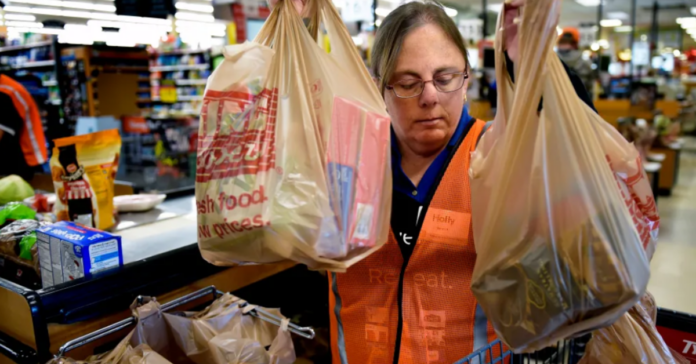The coronavirus pandemic is derailing environmentalists’ efforts to ban single-use plastic packaging, including plastic shopping bags and Styrofoam takeout containers throwing a wrench into a campaign that activists had been pushing for years as public health officials are increasingly concerned that reusable are spreading the disease.
Responding to similar pressures, Denver city officials announced in late March that enforcement of the city’s bag ban would be pushed back six months. The ten-cent tax on paper and plastic shopping bags would not take effect until January 2021, instead of July 2020.
“People feel like a brand new plastic bag is more sanitary,” bag ban sponsor Kendra Black told Denverite. “City staff and consumers have other priorities right now.”
Her comment is a surprising admission since it had looked like 2020 would be the year that Colorado lawmakers took aggressive steps to restrict the use of plastic shopping bags, Styrofoam, and other single-use plastics. In January, the city of Avon banned Styrofoam food containers. Avon’s ordinance was soon followed by the introduction of a bill in the state legislature that would ban polystyrene food containers. The Denver City Council had already unanimously approved the ten-cent plastic bag fee, which would scale up to a full disposable bag ban by December 2021.
According to emails obtained by Western Wire, the Denver plastic bag ban was developed after consultation last year with figures from Seattle and in a manner that ignored concerns about its impact on low income residents.
In a September 27th email, Joseph Wood, an aide to Denver City Councilwoman Debby Ortega, asked two Seattle City Council aides to share “media kits/ letters sent to grocers and messaging sent to residents as part of education and outreach around the ban/fee.”
Aides from the Seattle City Council responded by sending flyers, attachments, and other materials the city had distributed during the bag ban rollout.
The emails reveal that the Denver City Council saw the bag ban as a means of shaping citizen behavior, rather than a response to voter pressure. In one email, Liz Sukowski, an aide to Denver City Councilman Chris Hinds, asked for advice on how to ensure that low-income residents saw the same benefits of “behavior change.”
“Many cities with bag bans just exempt those residents from the policy, but I am looking for any other options that encourage participation by all residents,” she wrote. “I’m concerned that those who are exempted from the program will not receive the benefits of education and behavior change to move away from single-use plastic products.”
The figures from Seattle shared this attitude, telling the Denver staffers that, regardless of the monetary costs, plastic bag bans benefited low income residents because it resulted in less litter.
“We do not have any research regarding impacts of the ban on low income communities specifically, but due to the high compliance rate,” wrote Sego Jackson, a strategic advisor in waste prevention and product stewardship for the city of Seattle. “We are sure litter and storm drain blockages have decreased, to their benefit.”
“To be clear, the Seattle ordinance does not exempt low income from the plastic bag ban, but does waive the otherwise required fee on paper bags,” he continued. “So in that way, they still are part of reducing plastic bag use, but relieved of costs for the paper bags.”
The emails between the Denver and Seattle staffers did not discuss the health impacts of banning single use packaging.
In recent weeks, studies showing that reusable shopping bags often carry bacteria and potentially noroviruses have become more widely shared.

